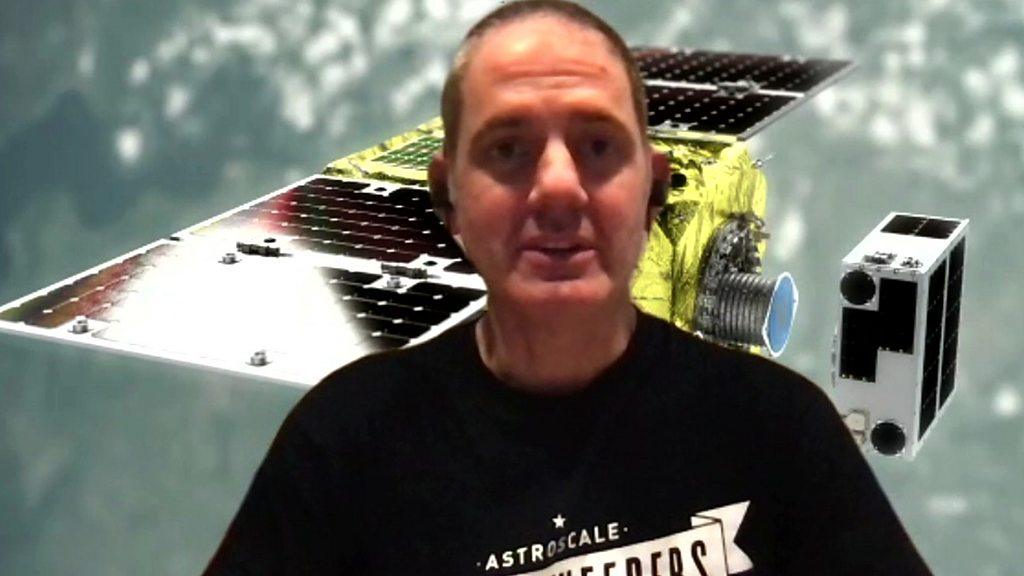Coventry exhibition highlights dangers of space debris
- Published

This artwork by Max Alexander and Steve Kelly was created from 250 individual photographs of examples of what is in orbit
Images designed to raise awareness about the vulnerability of space have gone on show in an exhibition.
Displayed in the Coventry Cathedral ruins, it highlights the problem posed by space junk surrounding the Earth, organisers said.
Our Fragile Space: Protecting the Near-Space Environment has been created by photographer Max Alexander and is backed by the University of Warwick.
The free exhibition is on until 21 May and features 75 images.
Organisers said it linked Earth's near-space with conversations around pollution in oceans and in the planet's atmosphere.
The project also highlights work by people and organisations making a positive impact to protect space and encourage new ways of thinking.
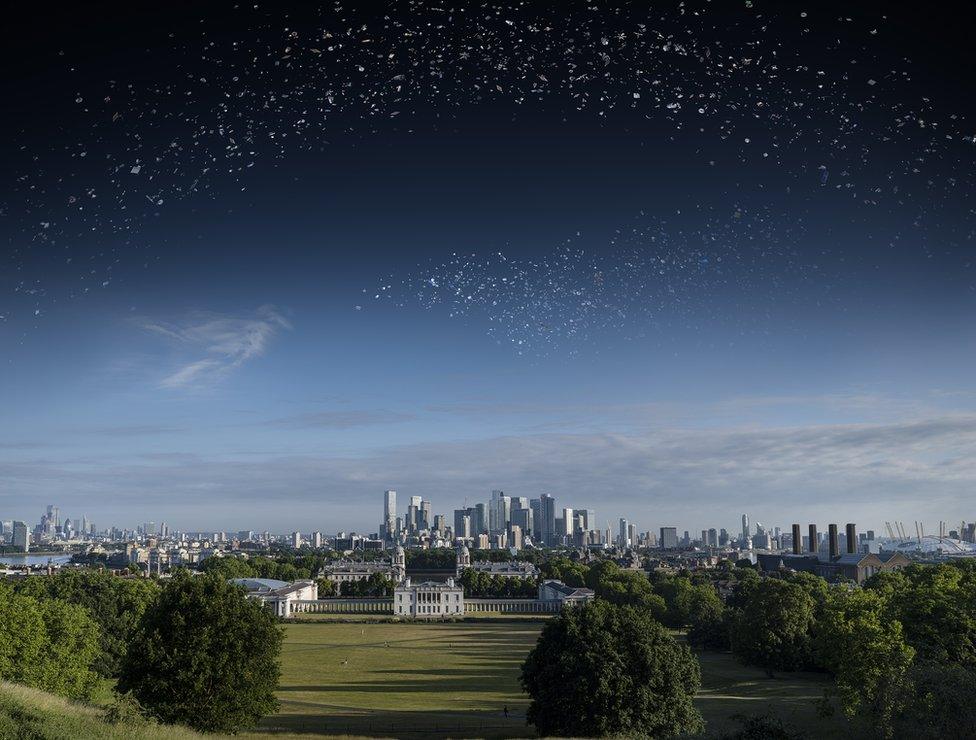
This photo, taken over a one-year period, contains 300 artefacts ranging from satellites to rocket bodies, solar panels and screws
Director of the Centre for Space Domain Awareness (CSDA) at the University of Warwick Don Pollacco said people had become dependent on satellites.
But he added use of space was "jeopardised by our lack of an environmental consideration of the effects of an exponential increase in space craft and the debris that these and existing satellites leave behind when they finish their operational phase".
Prof Pollacco said: "We need to understand this space junk population and clean up the space around the Earth before the risks make routine space activity untenable."
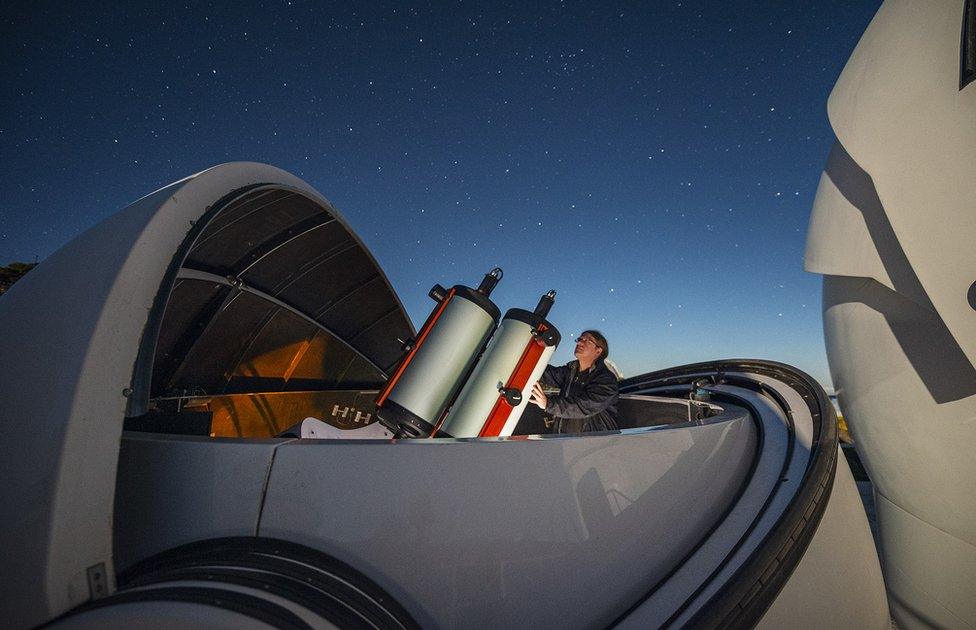
The CLASP telescope developed by the university tracks space debris, which varies in brightness as it tumbles through space
The exhibition has arrived in Coventry as part of the university's Resonate programme, which aims to help the public to engage with cutting-edge research through events.
Mr Alexander said: "We hope that through this collaboration, we can reach new audiences and raise awareness of an issue that will only be resolved by the public, the government, scholars and industry working together."

Follow BBC West Midlands on Facebook, external, Twitter, external and Instagram, external. Send your story ideas to: newsonline.westmidlands@bbc.co.uk, external
Related topics
- Published31 March 2023

- Published16 November 2022
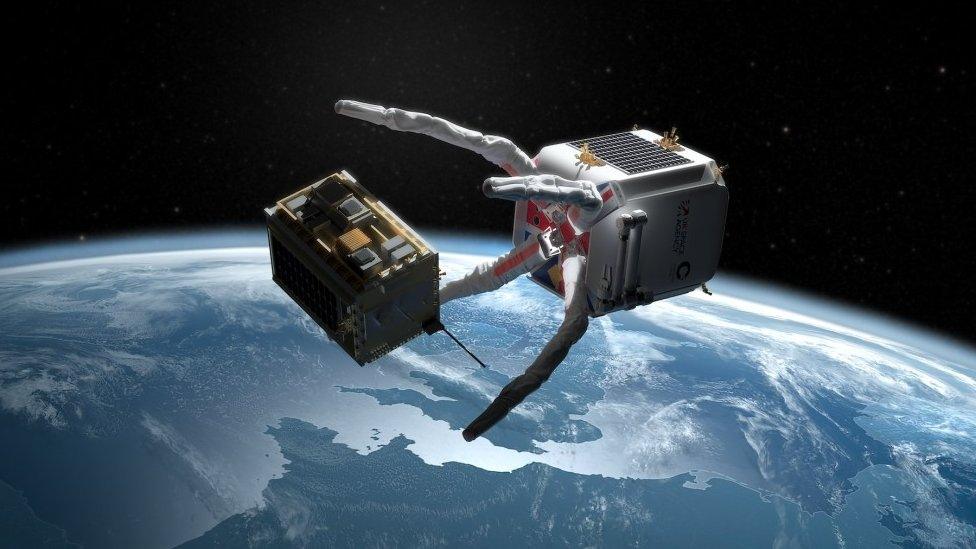
- Published2 August 2022
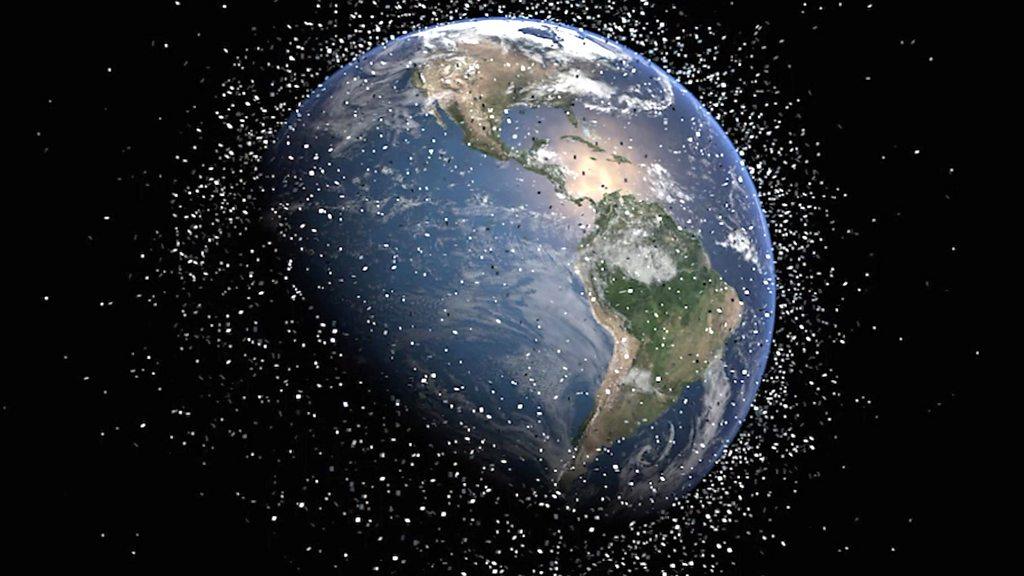
- Published22 March 2021
